Contributing $ 23
Invitación a presentaciones del documental
Los mecenas recibirán invitaciones para las presentaciones que se hagan del documental en diferentes lugares.
> 33 Co-financiers
Goteo ha construido una historia única en el mundo del micromecenazgo. ¿Quieres seguir formando parte de ella?
'Condenadas en Gaza', un documental sobre palestinas enfermas sin acceso al tratamiento necesario
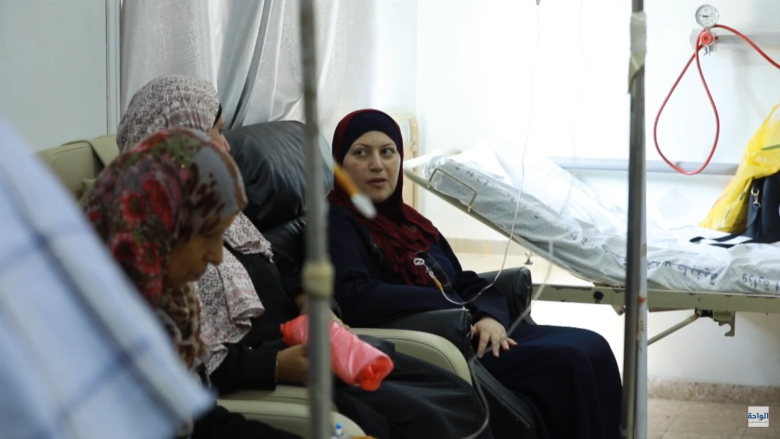

 Min.
Min.
 Opt.
Opt.
Los mecenas recibirán invitaciones para las presentaciones que se hagan del documental en diferentes lugares.
Los mecenas podrán ver el documental online de manera prioritaria, antes de que se presente en festivales a través de un enlace que les mandaremos.
El nombre de los mecenas aparecerá en los créditos del documental. Además, podrán verlo de manera prioritaria, mediante un enlace.
El nombre aparecerá en los créditos, se dará un acceso preferente al documental, bien enviando un enlace para verlo antes de que se estrene, bien invitándolo a una proyección en su lugar de residencia.
Documentary about Gaza women suffering cancer. Due to the blockade imposed by Israel on the Strip they can’t receive the necessary treatment to survive and are stigmatized within Palestinian society.
 Altyapı
Altyapı
|
Minimum | Optimum |
|---|---|---|
|
Rodaje
Hemos pasados dos semanas rodando en Gaza y en Jerusalén. Acompañando a nuestras protagonistas al hospital, visitándolas en casa o caminando con ellas por las calles.
|
$ 2,346 | |
|
Montaje
Horas de rodaje que necesitan seleccionarse y mezclarse para contar claramente esta historia.
|
$ 3,519 |
 Material
Material
|
Minimum | Optimum |
|---|---|---|
|
Música
¿Os imagináis una película sin música? Nosotras no. Por eso hemos querido vestir el documental con una música compuesta e interpretada expresamente para "Condenadas en Gaza" por músicos basados en Ramala. La letra del tema principal es un poema de una autora de la Franja de Gaza.
|
$ 1,760 |
 Görev
Görev
|
Minimum | Optimum |
|---|---|---|
|
Transportes, alojamiento y traductores en Gaza durante el rodaje
Hemos pasado más de dos semanas en Gaza buscando a nuestras protagonistas, haciendo entrevistas y rodando. Para las entrevistas hemos necesitado en algunos casos un traductor.
|
$ 1,173 | |
|
Posproducción
Necesitamos pulir el montaje, hacerlo más armonioso, colocar los subtítulos, realizar la posproducción de sonido y usar otros arreglos que son esenciales que el documental fluya sin perder información.
|
$ 2,346 | |
| Total | $ 5,866 | $ 11,144 |
The objective of the documentary “Condenadas en Gaza” (Doomed in Gaza) is to put a name and a face to the isolation, the lack of freedom of movement and the misery suffered by the almost two million inhabitants of the Gaza Strip, through a small group of women suffering from cancer. These women have not received timely diagnosis, treatment and the opportunity to recover. Sick women who, in other parts of the world, could have completely recovered. The blockade that Israel imposed on the Gaza Strip twelve years ago, after the Islamist movement Hamas assumed power, prevents the free movement of people and goods and closes the door to these women. They need an Israeli permit to leave Gaza and access Palestinian hospitals in the West Bank or East Jerusalem, where the treatment they need is available. In Gaza, for example, there is no radiation therapy or the latest generation scanners, essential for all cancer patients. For security reasons, Israel prevents the entry of these items. In addition, the health system has collapsed; it is greatly affected by power cuts and the lack of fuel, entering the Strip from Israel. Medicines and medical expertise are often lacking, as many doctors have left Gaza and most of those who remain cannot continue to train and update their knowledge.
As a rule, Israel only allows entry into its territory for the purpose of transit for medical treatment, if the treatment is “life-saving” or “life-altering,” and on the condition that it is not available in the Strip. According to figures released by the World Health Organization (WHO), in 2018, Gaza residents submitted a total of 25,897 permit applications to Israel for the purpose of receiving medical treatment in the West Bank, East Jerusalem and in very few cases in Israel. Israel only approved 61 percent of the applications submitted during the year; 31 percent of the applications did not receive an answer in time for the applicants to reach their appointments for treatment outside the Strip, or never received an answer at all. Some 8 percent of the applications submitted were directly denied.
We have chosen to tell the story of these women because in addition to not having access to treatment, they are discriminated against, despised and stigmatized within their own conservative and patriarchal society. In Gaza, a woman suffering cancer may be abandoned by her husband, suffer from her family's abandonment too or lose her job.
We believe that it is a subject misknown by the general public and is representative of what is happening in Gaza. Journalistically, it is a challenge. It requires
time and patience to gain the confidence of the protagonists and their families and to uncover intimate stories in a very traditional and closed society. It demands knowledge and understanding of the reality on the ground in Gaza; an effort to document and contrast sources and a duty of rigor and lucidity and journalistic courage to know how to approach to this reality and how to describe it.
The public, in general, including Israeli citizens, is not aware of the desperate situation faced by sick people in Gaza. They can’t imagine how the blockade and isolation affect them. The documentary will show as complete a picture of the origin of this situation and the shared responsibilities between the Israeli and Palestinian authorities. Our goal is to show and to listen these women, often silenced.
"Condenadas en Gaza" dura 38 minutos. Su lengua original es el árabe y será subtitulado. Sus únicas protagonistas son mujeres enfermas de cáncer de la Franja. Nos adentramos en su intimidad, sus miedos, sus decepciones y su deseo de curarse. En el documental se describe el doloroso y largo proceso para obtener un permiso de salida y un tratamiento. Nuestros objetivos son: describir un lado desconocido del conflicto israelo-palestino, dar espacio a estas mujeres que jamás han contado su historia, denunciar la violación de sus derechos más elementales, como el de recibir tratamiento, y subrayar la discriminación que sufren dentro de la sociedad de Gaza, cada día más hermética, conservadora y patriarcal, debido, en gran parte, al aislamiento que padece por el bloqueo israelí.
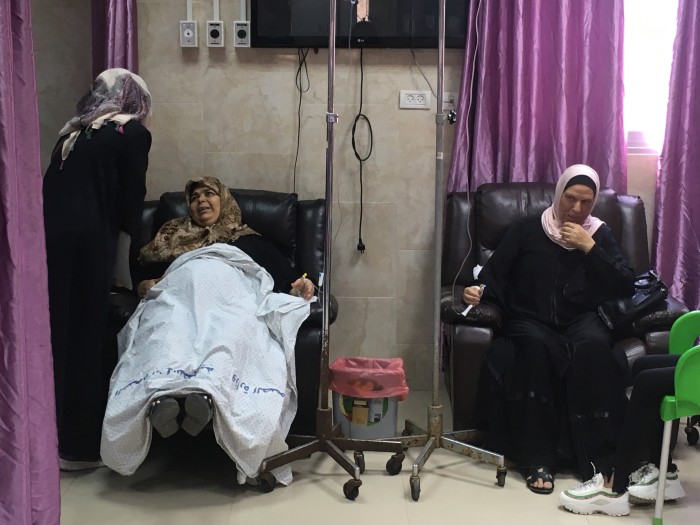
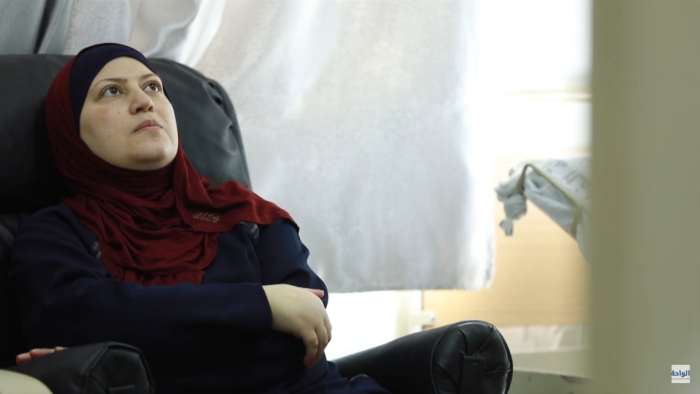
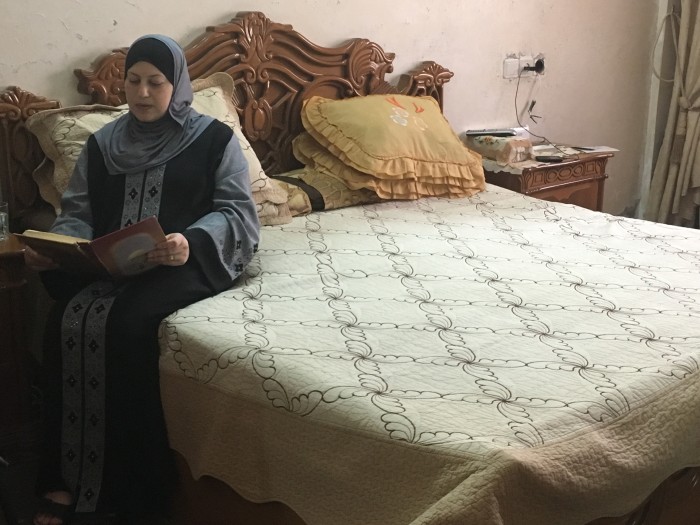
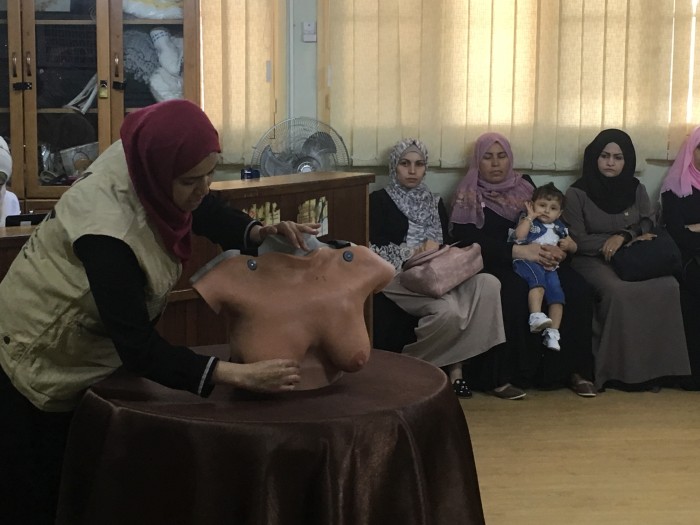
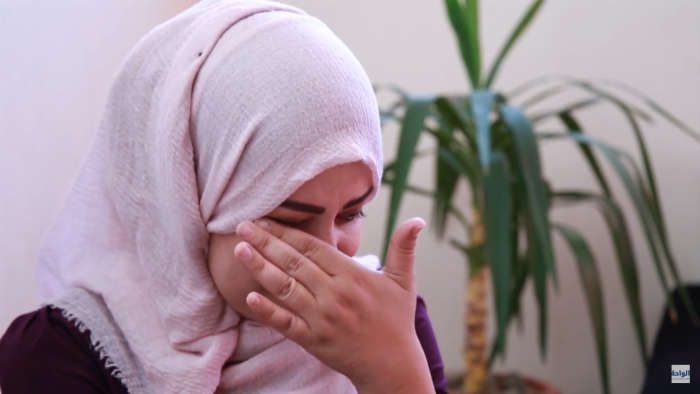
El conflicto israelo-palestino está desgastado y la opinión pública internacional no oculta un cierto hastío ante las noticias que llegan de esta zona del mundo. Nuestro documental muestra un lado desconocido, doloroso y muy revelador de este conflicto. El documental está dirigido a personas ya sensibilizadas con la situación del pueblo palestino, pero también a quien no sabe demasiado sobre la situación de la Franja de Gaza. También creemos que puede interesar a personas e instituciones consagradas a la atención sanitaria. También podría ser un material útil para oenegés de derechos humanos, centros educativos, asociaciones que trabajan en la prevención y tratamiento del cáncer de pecho y organizaciones feministas. Nuestra intención es presentarlo además en el mayor número de festivales posible.
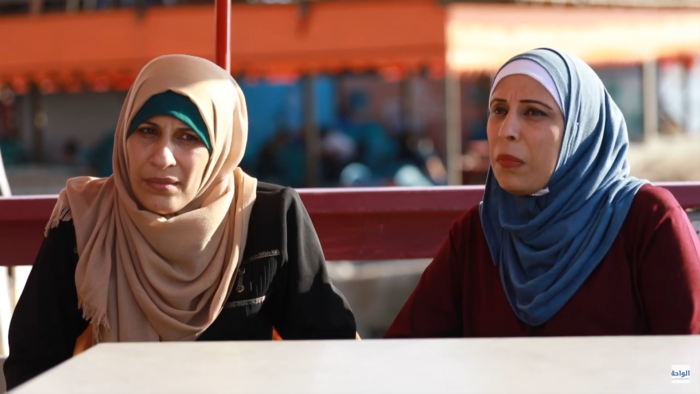
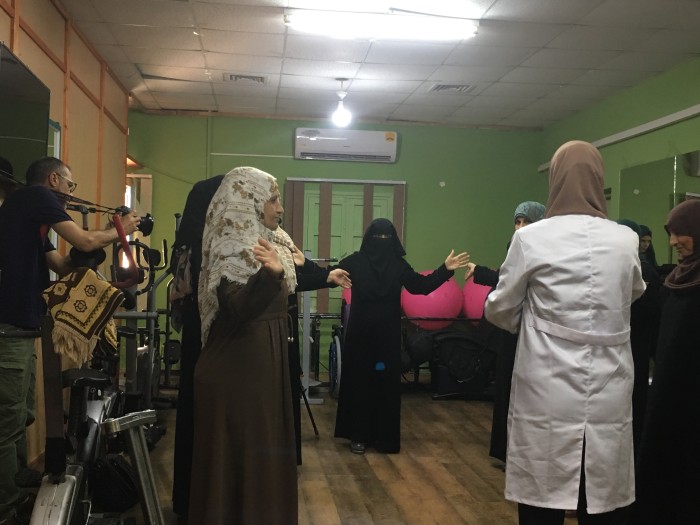
Describing the drama of these sick women represents for us, Ana Alba and Beatriz Lecumberri, a challenge and great journalistic joy. It is an unknown and sensitive issue that has required research and time. It gives a voice to sick, silenced and forgotten women, which demands clarity, accuracy and professional sensitivity. However, it is an expensive project that we cannot afford alone. Ethically we don’t want to receive funding from partisan institutions, linked to specific political interests.
We have almost ten years of experience in Israel and Palestine. We have spent weeks in Gaza and we have the sources, experience and sensitivity to address this issue.
Our challenge is to give a voice to the protagonists and not to the political actors. In a used, old, and complicated conflict as is the Israeli-Palestinian one, our main objective is to produce a true, informative and human document.
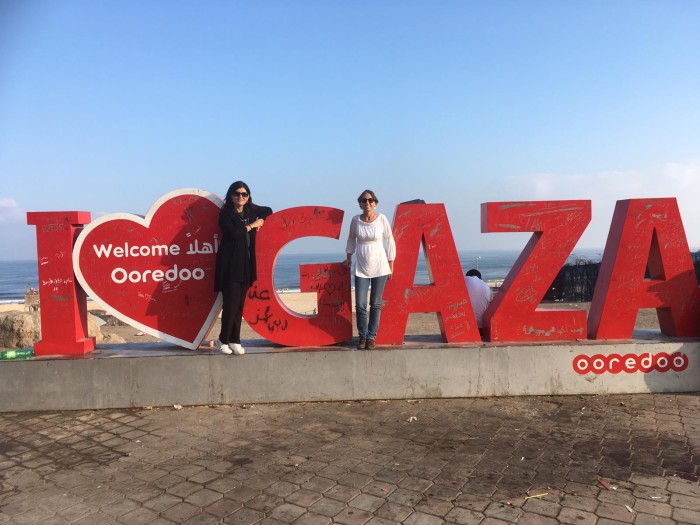

Creemos y defendemos un periodismo libre de injerencias políticas, presiones económicas y de cualquier tipo.
Invitación a presentaciones del documental
Los mecenas recibirán invitaciones para las presentaciones que se hagan del documental en diferentes lugares.
> 33 Co-financiers
Acceso privilegiado al documental
Los mecenas podrán ver el documental online de manera prioritaria, antes de que se presente en festivales a través de un enlace que les mandaremos.
> 31 Co-financiers
Aparición del nombre en los créditos del documental
El nombre de los mecenas aparecerá en los créditos del documental. Además, podrán verlo de manera prioritaria, mediante un enlace.
> 37 Co-financiers
Créditos, acceso prioritario al documental, invitación a presentaciones
El nombre aparecerá en los créditos, se dará un acceso preferente al documental, bien enviando un enlace para verlo antes de que se estrene, bien invitándolo a una proyección en su lugar de residencia.
> 34 Co-financiers